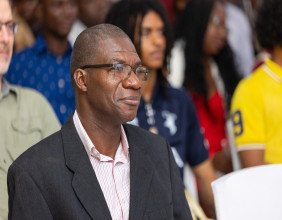A national gas reserve could be on the table as a solution to deal with future supply issues, as the government looks to lock in its energy relief measures.
Federal parliament will be recalled on Thursday to debate plans to cap gas for 12 months at $12 a gigajoule, and place a temporary cap on coal of $125 a tonne.
The proposed laws would also set up mandatory "gas market codes" to regulate the supply and purchase of gas.
But while parliament is looking at short-term solutions to the energy crisis, Resources Minister Madeleine King said a national gas reserve could also be considered as a longer-term option.
"Given the extraordinary state of the market at the moment, we have to look at all options," she told ABC Radio on Wednesday.
"It's certainly something we can look into, it is complicated to retrofit a reservation policy after we've had a LNG export industry in place for a number of years, but that doesn't mean it's impossible."
Ms King is set to meet with LNG operators on Thursday on a gas supply deal that would help prevent shortfalls on the east coast.
However, companies involved in the deal, including Shell, have said they would suspend involvement in the agreement in the wake of the government's energy plan.
The minister said she wasn't concerned by the decision from Shell.
"It's not a halt, they've been very clear, they're just bringing it to a temporary stop while they understand what we're proposing to implement, and I think that's reasonable," she said.
The government's energy plan will need the votes of either the coalition or the Greens plus one crossbencher to get the new laws through the Senate.
Greens leader Adam Bandt will push for a two-year freeze on power bills and support for businesses and households to replace gas appliances.
Mr Bandt said this could be funded by a windfall tax on coal and gas corporations.
"We want to see more money in people's pockets paid for by making the big coal and gas corporations pay their fair share of tax," he told reporters on Tuesday.
"We want to have some further discussions with the government about the level of support that's going to be provided to people because we're worried that people are going to wind up doing it tough."
Mr Bandt admitted negotiating did not mean everyone got what they wanted, but he was hopeful his talks with the prime minister would result in positive changes to the proposal.
"Does everyone in these discussions end up getting everything they want? Not always," he said.
"Are we able to do something that means people get a bit more money in their pocket than they otherwise would have, and help people reduce their power bills in the long term? I think that's within reach."
The coalition will meet on Wednesday to decide on the party's formal position on the bill, but it's expected the opposition will vote against the relief measures.
Nationals leader David Littleproud said the government needed to address supply issues in the energy market.
"I am as supportive of renewables as anyone else but the reckless speed that they are going at it meant they are putting pressure on the energy market and costs because they are not addressing supply on our firming sources, which is gas," he told ABC TV.





